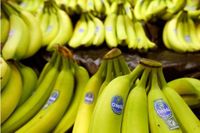On August 29, 2025, Panama’s President José Raúl Mulino stood before the press in Brazil and signed an agreement that many in the Central American nation had been waiting for: Chiquita Brands, the US banana giant, would resume operations in Panama after a months-long crisis that left thousands unemployed and the country’s banana exports in turmoil. The move, which comes just months after a massive strike and the abrupt closure of Chiquita’s Changuinola plant in Bocas del Toro, is seen as a lifeline for a region that depends heavily on both tourism and banana production.
The roots of the crisis stretch back to March 2025, when Chiquita banana workers in the western province of Bocas del Toro joined other labor sectors in a strike against proposed changes to Panama’s social security system. The workers’ action, which quickly gained traction and led to widespread disruption, was ultimately declared illegal by both President Mulino and a labor court. The government maintained that the strike had no legal standing, but the damage was already done. By the end of May, Chiquita had shuttered its main plant in the region and laid off some 6,000 workers, citing losses of at least $75 million. The closure triggered road blockades, product shortages, and a palpable sense of uncertainty in Bocas del Toro, a province where bananas are not just a crop, but a way of life.
According to the Associated Press, the government of Panama immediately began negotiations with Chiquita to find a path forward. The stakes were high: bananas accounted for more than 17 percent of Panamanian exports in the first quarter of 2025, and the sector’s collapse threatened to ripple through the entire economy. Local officials and business leaders warned that the loss of thousands of jobs could devastate Bocas del Toro, where employment opportunities are already limited.
The new agreement, signed in Brazil on August 29, lays out a phased plan for Chiquita’s return. In the initial stage, the company will rehire 3,000 workers, with another 2,000 to follow in the coming months. The government’s goal is for Chiquita to be fully operational again by February 2026. As part of the deal, Chiquita has committed to investing approximately $30 million to restart production on 5,000 hectares of banana-growing land—a substantial bet on the region’s future. "We are going to resume operations in the country under a new operational model that is more sustainable, modern, and efficient, creating decent jobs and contributing to the economic and social development of the country and the province of Bocas del Toro," Chiquita President Carlos Lopez said in a statement, as reported by Agence France-Presse.
President Mulino, for his part, described the agreement as "a positive outcome for Bocas del Toro and the thousands of workers who were left unemployed" by the closure. The government’s statement emphasized that the process of rehiring would begin immediately, with a view to restoring stability both for workers and for the broader economy. The phased approach is intended to balance the company’s need to rebuild its operations with the urgent need for jobs in the region.
The broader context for the strike and its aftermath is the ongoing debate over Panama’s social security system—a topic that has sparked protests and labor unrest across multiple sectors in recent years. Workers argued that the proposed changes would erode their benefits and threaten their long-term security. The government, however, insisted that reforms were necessary to ensure the system’s solvency and sustainability. When Chiquita workers joined the strike in March, it quickly escalated into a confrontation with national implications.
By May, as the strike dragged on and production ground to a halt, Chiquita’s leadership made the difficult decision to suspend operations and terminate thousands of employees. The company pointed to mounting losses and logistical challenges, including blocked roads and supply chain disruptions. In a statement at the time, Chiquita said the strike had cost it at least $75 million—a figure that underscores both the scale of the crisis and the importance of bananas to Panama’s export economy.
For the workers of Bocas del Toro, the last few months have been a time of hardship and uncertainty. Many families rely on banana wages to make ends meet, and the sudden loss of income forced some to seek work elsewhere or rely on government assistance. Community leaders voiced concerns about rising poverty and social instability, warning that prolonged unemployment could have lasting consequences for the province.
The new agreement, then, is more than just a business deal—it’s a signal of hope for thousands of Panamanians. Chiquita’s commitment to a "sustainable, modern, and efficient" operational model suggests that the company is looking to the future, aiming to avoid the pitfalls that led to this year’s crisis. The $30 million investment in banana-growing land will help restore production capacity and, ideally, position Panama to reclaim its place as a leading exporter of the fruit.
Still, challenges remain. The government’s target of full operational capacity by February 2026 is ambitious, and both sides will need to work closely to ensure that the rehiring process proceeds smoothly. There are also lingering questions about labor relations and the possibility of future unrest, especially if social security reforms remain contentious. For now, though, the mood in Bocas del Toro is one of cautious optimism.
It’s worth noting just how central bananas are to Panama’s economy and identity. According to official data cited by AFP, bananas made up over 17 percent of the country’s exports in the first quarter of 2025. The fruit’s journey from the plantations of Bocas del Toro to supermarket shelves around the world is a testament to the region’s agricultural prowess—and a reminder of what’s at stake when that chain is disrupted.
As Chiquita prepares to rehire its workforce and restart production, all eyes will be on the company’s ability to fulfill its promises and on the government’s efforts to maintain labor peace. The events of 2025 have shown just how fragile the balance can be, and how quickly a single dispute can ripple through an entire nation. For now, at least, Panama’s banana workers can look forward to returning to the fields, and the country can hope for a return to normalcy after a tumultuous year.
With the ink now dry on the agreement and the first wave of workers set to return, Panama’s banana industry is poised for a comeback—one that could restore livelihoods, stabilize exports, and reaffirm the country’s place on the global agricultural stage.


